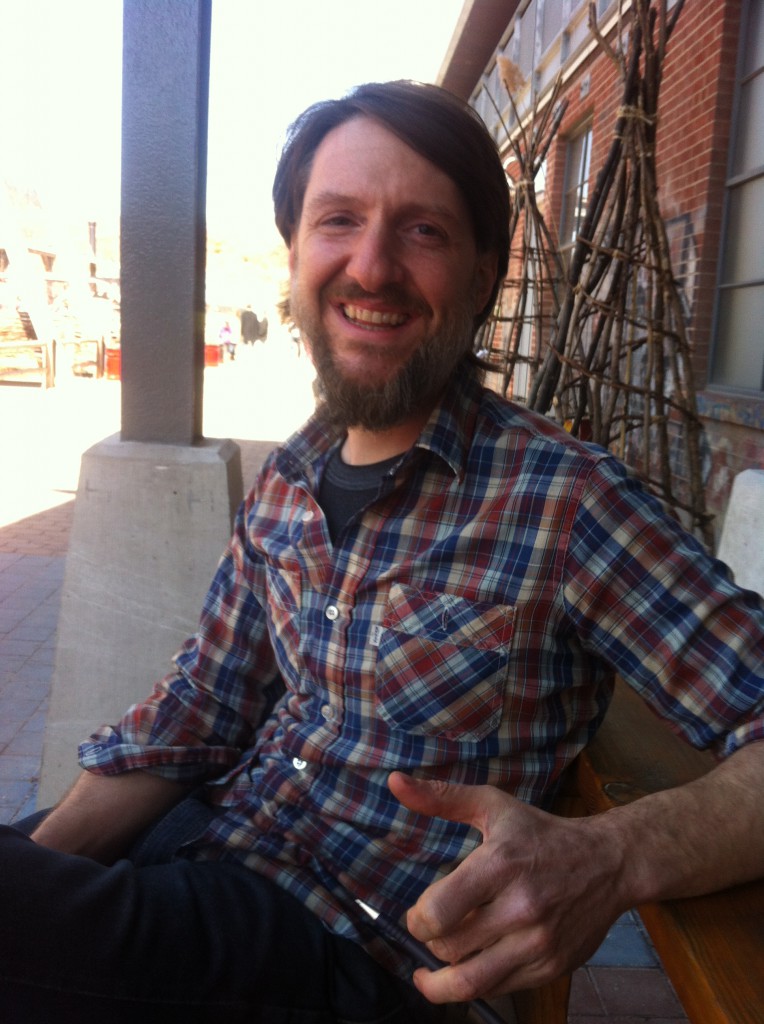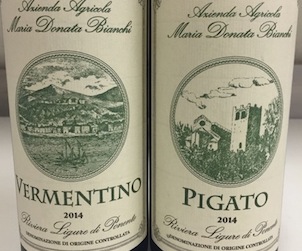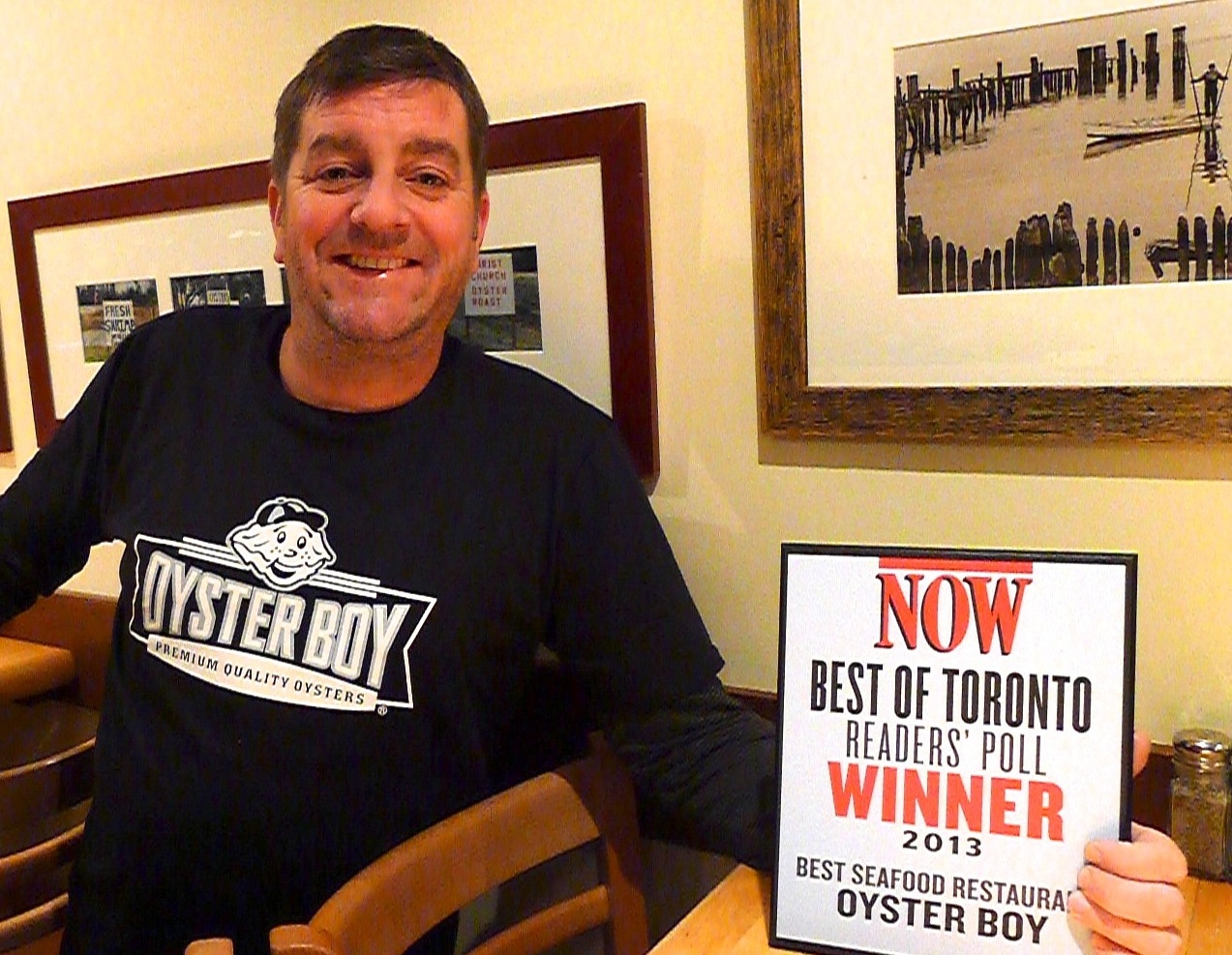Mark Trealout and I begin our conversation by discussing milk. We think about milk after it has been pasteurized and wonder how vitamins are reintroduced to fortify it. Mark asks me where I think vitamin supplements come from and what I think a large amount of Vitamin D looks like. I turn my head sideways and scratch my head for a while. Then we both imagine a big lab with scientists standing over big vats of milk pouring various powders and liquids into it in order to make it a source of protein and vitamin D. We have no clue if our suspicions are true and since our conversation, neither of us have pursued this question any further. Mark is thankful that he is not a scientist. He is farmer. Mark has the pleasure of witnessing his produce grow from seedling to hardy plants, plucked from the earth and set on the table. He specializes in growing various types of greens, beans and alliums. He dabbles with tomatoes, sweet potatoes and just about anything else he can grow. Mark also breeds and raises heritage chickens, ducks, and turkeys. He is an avid forager of fiddleheads, dandelion and nettles. When Mark isn’t on the farm he is cooking for his wife and children and making trips to and from the city to distribute his products. I am tired thinking about Mark’s life. He explains that this is his passion and speaks with enthusiasm about his craft. He became interested in farming while he was apprenticing as a chef at Emerald Lake Lodge near Banff in British Columbia. As an up and coming cook, Mark was inspired by how the kitchen sourced their ingredients. They would get in fresh game that came from a First Nations group in Alberta and farm fresh produce grown in the Okanagan Valley. Mark left the kitchen to work on some of the farms in the Okanagan. With dirt under his fingernails and grass stains on his knees, Mark began to travel and work on different farms with the World Wide Organization of Organic Farms (WWOOF). He made it down to Tennessee and back to Windsor, when he decided to pursue an education in ecosystem management in Lindsay, Ontario. While he was a student, he picked up a job cooking to make some extra cash. He met his wife, Laura Boyd who was a server at the restaurant. Laura’s family owned a 100 acre farm that was not being used. She was thinking about reviving the land and when Mark expressed interest in helping, he moved in and never moved out. Together, Mark and Laura started with small gardens while maintaining their jobs at the restaurant. They started a coop called Kawartha Ecological Growers in order to have the means to pursue farming as a full time career. The coop was made up of around 20 farms within a 50km radius of Mark and Laura. The members would pool their goods together and bring them down to farmer’s markets and to a variety of restaurants in the city. After about 7 years running the coop, Mark sold it to two of the members in order to concentrate his time and effort on his own farm. The coop meant dealing with a lot of administrative jobs and little time doing what he enjoys most: farming. Mark now sells independently under the name Grassroots Organics. Most of his time is spent on his farm. He drives into the city twice a week to sell at the market, distribute to the 12 restaurants he supplies to and to drop off goods to his 15 CSA members. Mark wants simplicity. He grows his products organically with lots of love and care and proudly invites anyone interested in witnessing the operation up at his farm. He loves creating new traditions and hopes to pass them down to future generations. His labour is a labour of love that he would not trade for anything. Browse all of Michelle Rabin’s GFR Suppliers Series here.  Michelle Rabin is a Toronto based recipe tester, writer and server. She loves shopping at farmer’s markets, supporting local and sustainable products and of course eating delicious food. Follow her at@michellerabin and check out her blog The Art of Eating Alone.
Michelle Rabin is a Toronto based recipe tester, writer and server. She loves shopping at farmer’s markets, supporting local and sustainable products and of course eating delicious food. Follow her at@michellerabin and check out her blog The Art of Eating Alone.








